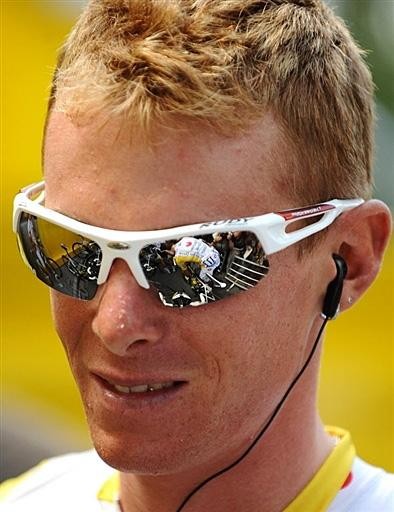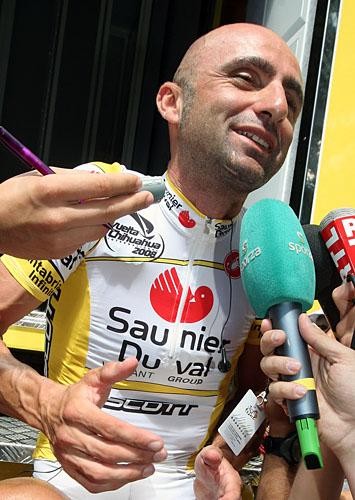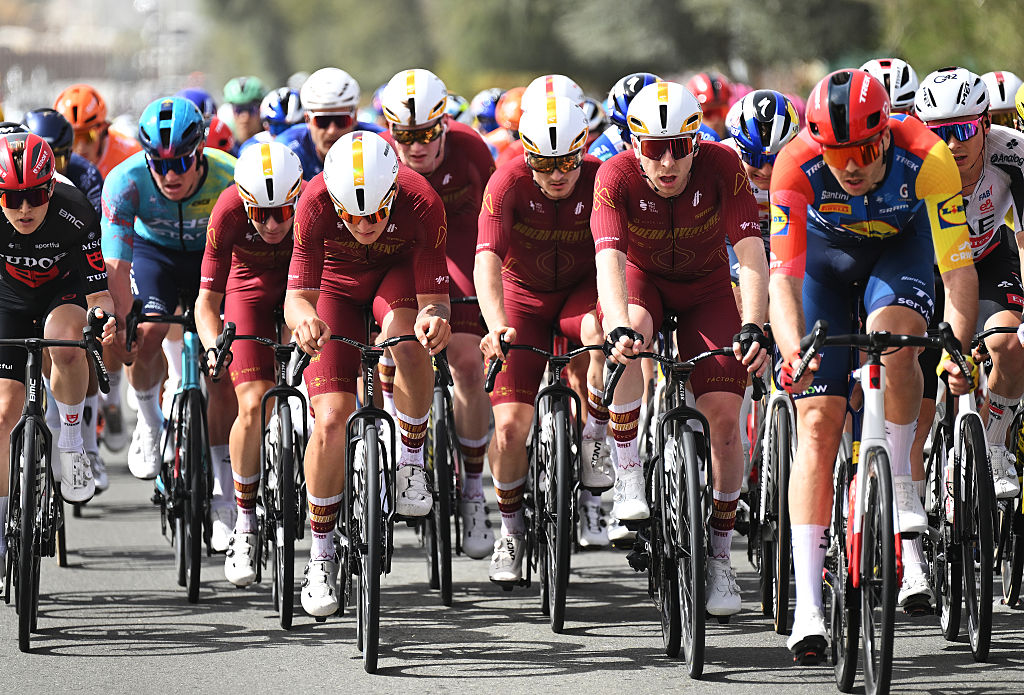Riccò suspended, Piepoli denies
The tale of Riccardo Riccò and Leonardo Piepoli, the two Italian cyclists on the former Saunier...
The latest race content, interviews, features, reviews and expert buying guides, direct to your inbox!
You are now subscribed
Your newsletter sign-up was successful


The tale of Riccardo Riccò and Leonardo Piepoli, the two Italian cyclists on the former Saunier Duval-Scott squad who were kicked off the team during the Tour de France, continued Thursday with punishment for Riccò and a denial by Piepoli. Riccò, 24, who precipitated the entire scandal which lost the team its title sponsor when he tested positive for EPO, confessed to having taken the drug and received a suspension Thursday from the Italian Olympic Committee (CONI).
Piepoli, 36 years old, who had not tested positive but, as the room-mate of Riccò during the Tour, was sacked by his team for violating the code of ethics "denied everything" after being questioned by CONI.
Both riders were part of a hugely successful first week of the Tour de France for Saunier Duval-Scott. Riccò won stage six in Super Besse, stage nine, and wore the jersey of best young rider for four days before his positive was announced.
Piepoli broke away on stage ten with his team-mate Juan Jose Cobo to give the team a one-two finish on the first major mountain top finish at Hautacam.
All that changed when Riccò, who reportedly tried to evade the anti-doping escort, tested positive for a next-generation EPO called Mircera – a drug which hadn't been detected in anti-doping controls until the Tour.
He initially denied doping, despite being detained by the French authorities and indicted on charges of "use of poisonous substances." But after being interviewed by CONI prosecutor Etorre Torri, Riccò took responsibility for his actions, admitting that he had taken the drug before the Tour. He refused the counter-analysis of his sample.
Riccò insisted that this was the only time he had doped, and that his results from the Giro d'Italia were achieved without drugs, a fact which will be checked by the anti-doping laboratory in Rome. The lab did not have a test for Mircera during the Giro, and intends to re-analyse the samples.
The latest race content, interviews, features, reviews and expert buying guides, direct to your inbox!
After admitting to using the drug, Riccò said he had been subjected to many doping controls during his time at the Tour de France, but that most of them came back negative, calling the effectiveness of the test into question.
Upon firing both riders and withdrawing the entire squad from the Tour de France, team manager Mauro Gianetti said, "I have personal doubts about Piepoli: after talking with him I felt that he could not be trusted." Piepoli reportedly confessed to having "done the same as Riccardo," a statement which the team's directeur sportif later denied.
Piepoli was called as a witness in the case of Riccò, and said he denied everything when questioned by reporters after his interview with the Italian Olympic Committee (CONI) on Thursday. "I had nothing important to say with regards the hearing. I denied everything," he said according to AFP. "I was questioned only as a witness. I said what I had to say, nothing more, nothing less."
This wasn't the first time Piepoli was taken out of competition under the team's code of ethics. In June, 2007, he tested 'non-negative' for a too-high level of asthma medication in his urine. He was suspended by his team pending the outcome of that investigation.
He was later cleared by the Monaco cycling federation after the Barcelona laboratory failed to determine if the drug was inhaled or injected, and he returned to competition.
